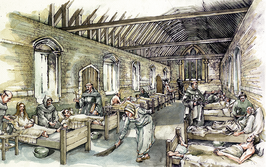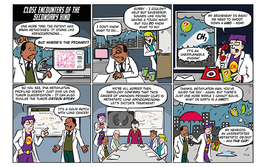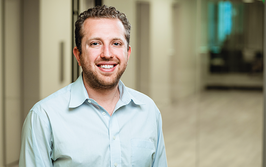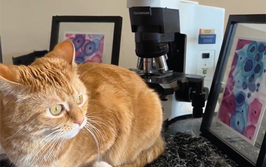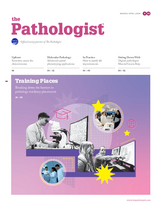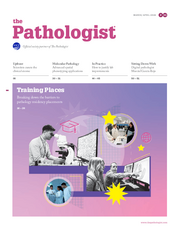The Healthcare Crisis We Are Failing To Address
Only advocacy can solve the forensic pathology recruitment crisis
Kristen Adams | | Opinion

Across the USA, a pattern of crisis has emerged. In local newspapers and, occasionally, wider media, you see headlines that read, “Where Have All the Forensic Pathologists Gone?” and “Shortage of Forensic Pathologists!” I think it’s interesting that the assumption is that they’ve gone somewhere – maybe Fiji or Disney World, who knows? The more accurate title should read, “We, as a nation, have failed to adequately prepare and train a forensic pathology force to deal with the aging population and massive opioid epidemic we are currently facing.”
I know that my peers in medical school and I cannot be blamed for this crisis. We were told that caring for the living is the first priority; the dead will have as much dignity as we can provide, but we didn’t have a moment of training or time to mull over death investigation. It wasn’t even an afterthought tucked into the last moment of the last month of the semester. I am sure students at most other medical schools have a similar experience. Your entire foundation of knowledge must be devoted to the living and breathing patients before you – no time wasted for the dead. And so I can’t blame the 99.94 percent of physicians who do not choose forensic pathology as their specialty.
The National Resident Match Program data show an all-time record high number of registrants at 44,603 for 2019. Of the 32,194 who matched, less than 2 percent chose pathology as their specialty. When you look at the number of residents who chose forensics, roughly 21 successfully completed a fellowship and passed their board exam in a year. That means that just 0.06 percent of applicants who complete residency go on to choose – and successfully complete – a fellowship in forensics. Truly a specialized group.
At the moment, there are about 500 board-certified forensic pathologists doing work that should be distributed between double that number. In about five years, we might be able to meet current demands, but that’s without taking into account the increasing population size, retirement, loss to the private sector, and other factors that would reduce the current workforce of practicing (and aging) forensic pathologists. Here in Mississippi, we conduct 1,500 autopsies per year. At a minimum, we need five forensic pathologists; six would be ideal for accurate and timely autopsy reporting. We currently have two. I think about those two pathologists performing 750 autopsies each per year – an average of about two a day, including weekends and holidays – and I wonder when they have time to sleep or see their families.
The only real option we have to address this crisis is advocacy. To reach out to undergraduate and medical students early and often. To make them aware of this critical need. To demonstrate that forensic pathology is medicine at its most humanistic, most humble, most honest, and most compassionate. We need to show them that these patients were neglected for far too long and actually needed us the most. The responsibility is on those of us in academic medicine and other positions of advocacy to promote forensics to lawmakers and other groups. To advocate funding increases for the salaries of forensic pathologists, loan forgiveness programs to increase recruitment, and other support for their practices.
To end this crisis, we as pathologists must all share the responsibility of advocacy.
Assistant Professor and Course Director of General and Systemic Pathology at the University of Mississippi Medical Center, Jackson, USA.

